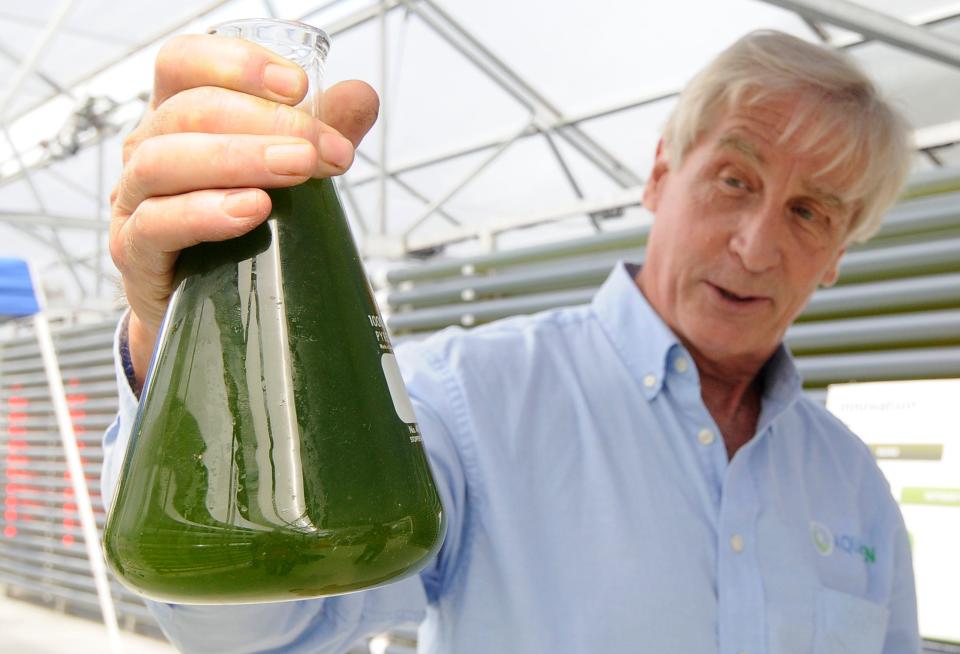Living laboratory of off-grid renewable energy: What is the Cape Cod Watershed Institute?
Brian Braginton-Smith and his team at the Lewis Bay Research Center have been working to establish the Cape Cod Watershed Institute for the last few years.
The goal is to establish an independent and "unconventional" educational platform in experiential learning and workforce training, through a collaboration of the Lewis Bay Research Center and the Dennis-Yarmouth Regional School District. The state awarded Braginton-Smith $1.37 million last year for the institute.
“We as a society have to move from the traditional model to a more sustainable one, because the whole dynamic of climate change and the implications are now evident,” said Braginton-Smith, president of Lewis Bay Research Center, based in West Yarmouth.
The climate crisis is an opportunity for people to learn, as well as develop sustainable solutions, according to Braginton-Smith.

“We're transitioning into something that's in reality and it is a crisis, but it's also a really cool opportunity, because it’s a new epoch,” he said.
The concept for the institute is a living laboratory in net-zero technology and sustainability. The institute will provide hands-on learning for students and workers on new, sustainable systems, and the skills needed to construct and maintain them.
The institute will provide off-grid microgrid-based renewable energy, recycling of wastewater and other resources, and integrated microgrid systems management.
Students and workers will learn in STEM-based green tech classrooms and on-campus or nearby net-zero infrastructure, including building-integrated renewable energy, a wastewater treatment reuse system as an alternative water resource and urban agriculture.
It will also include onsite learning opportunities at the Sandwich Green Community, with 144 units of affordable housing, solar-powered electricity and farming, energy storage and advanced recycling.
The core facility will be a 10,000-square-foot building that will be equipped with sustainable technology, including ground-mounted solar farms, and integrated solar with classrooms and indoor urban farming among others.
Before the pandemic, former Dennis-Yarmouth Superintendent Carol Woodbury, former assistant superintendent Ken Jenks, and Dennis-Yarmouth Regional High School Principal Dr. Paul Funk had been involved in the planning.
State Sen. Julian Cyr, also supported the plan. With support from the rest of the Cape's delegation, he facilitated an appropriation in the state’s 2023 economic development bond bill, for $1.37 million in funding.
The money will expand the existing green infrastructure of the Dennis-Yrmouth schools, as well as education and training facilities on and offshore.
“We're currently working on site design and planning, so that we can move forward with the building facilities,” said Braginton-Smith.
According to Braginton-Smith, construction is scheduled to begin in spring 2024.
After the untimely passing of both Ken Jenks and Paul Funk and Carol Woodbury's retirement, the collaboration is now with the current Dennis-Yarmouth Superintendent Marc Smith.
"The new superintendent is extremely excited about it, committed to the plan and we have a really strong relationship with the D-Y school district," said Braginton-Smith.
Rasheek Tabassum Mujib writes about health care and education. Reach her at rmujib@capecodonline.com.
Thanks to our subscribers, who help make this coverage possible. If you are not a subscriber, please consider supporting quality local journalism with a Cape Cod Times subscription. Here are our subscription plans.
This article originally appeared on Cape Cod Times: Solar-powered learning for D-Y students: Cape Cod Watershed Institute

